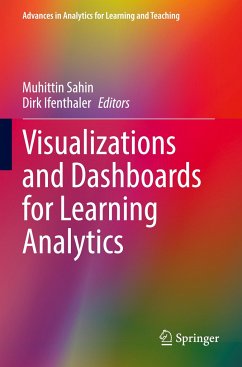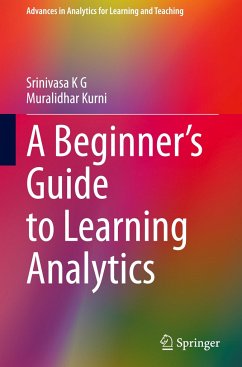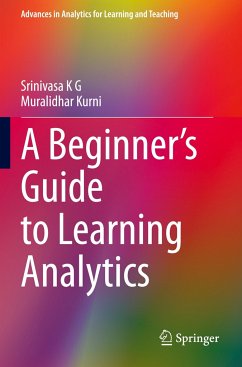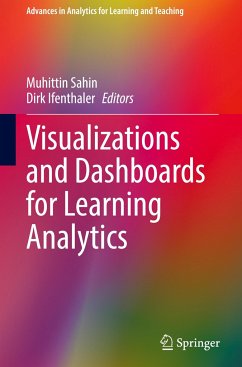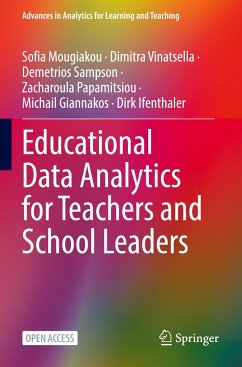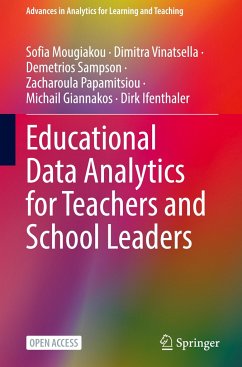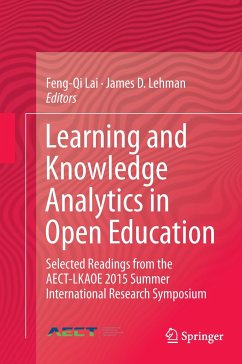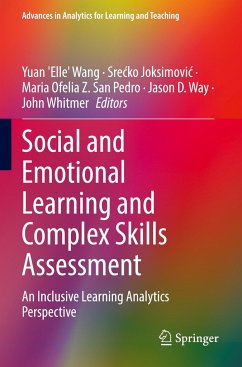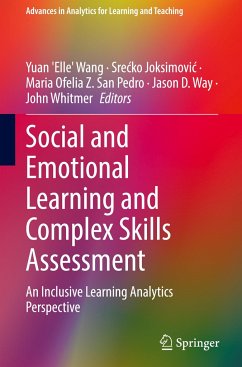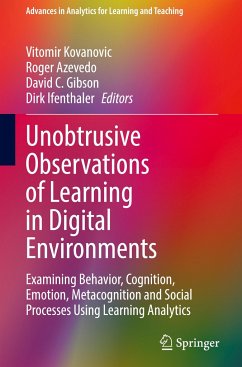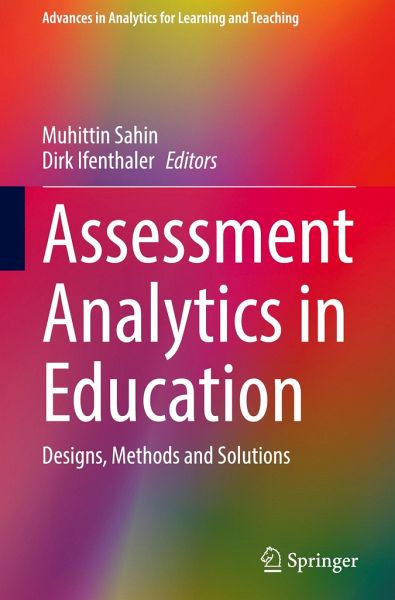
Assessment Analytics in Education
Designs, Methods and Solutions
Herausgegeben: Sahin, Muhittin; Ifenthaler, Dirk

PAYBACK Punkte
53 °P sammeln!
This book is about the current state of research in online assessment. The growth of this field is set to accelerate exponentially with emerging opportunities for automatic data collection and analysis. Yet, the future of online assessment faces major challenges including, perhaps most importantly, the extent to which assessments, when enabled by technology, can serve simultaneously the needs of learners, teachers and those of the enterprise of education. This book details, specifically, the multiple ways in which online assessment can be utilized, such as:Providing virtual coaching or tutorin...
This book is about the current state of research in online assessment. The growth of this field is set to accelerate exponentially with emerging opportunities for automatic data collection and analysis. Yet, the future of online assessment faces major challenges including, perhaps most importantly, the extent to which assessments, when enabled by technology, can serve simultaneously the needs of learners, teachers and those of the enterprise of education. This book details, specifically, the multiple ways in which online assessment can be utilized, such as:Providing virtual coaching or tutoringOffering appropriate scaffoldingAllowing analysis of student decision-making Providing the mechanism for students to review and comment on each others digital creationsCreating a space for online discussionProviding expert coaching for modeling and animation workWith the increased availability of vast and highly varied amounts of data from learners, teachers, learning environments, and administrative systems within educational settings, further opportunities arise for advancing pedagogical assessment practice (Ifenthaler et al., 2018).
This book fully details these opportunities, as well as privileges and constraints of analytics-enhanced assessment, harnessing formative as well as summative data from learners and their contexts in order to facilitate learning processes in near real-time and help decisionmakers to improve learning environments.
This book fully details these opportunities, as well as privileges and constraints of analytics-enhanced assessment, harnessing formative as well as summative data from learners and their contexts in order to facilitate learning processes in near real-time and help decisionmakers to improve learning environments.





